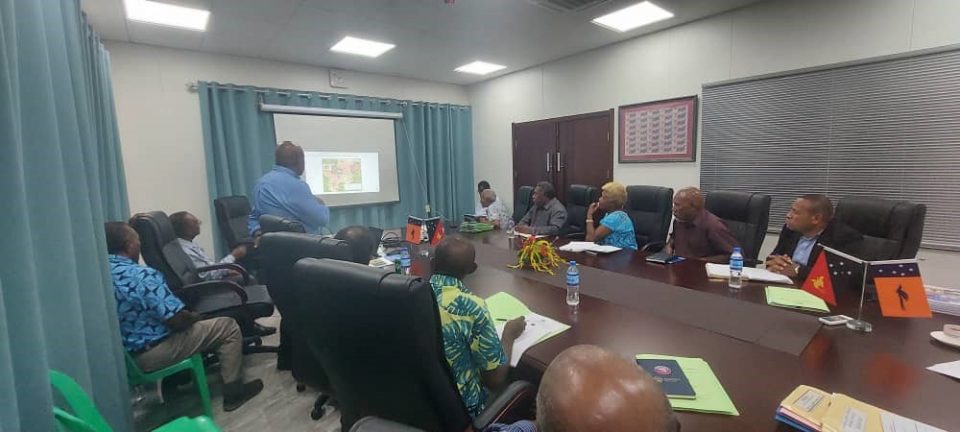By Claire Mauta
The Governor of New Ireland Province Sir Julius Chan in a statement stated his has put Simberi Miner, St Barbara Limited on notice for not keeping its end of the bargain in regards to outstanding Royalty payments to the Provincial Government.
This comes after it was made known to the Provincial Executive Council (PEC) on Tuesday 20th of February, that the Gold mine had already reached the production mark of 100,000 ounces of gold back in 2015.
This was what the Simberi’s External Government Liaison Specialist, Dennis Zeriga-Gati presented to the company’s quarterly update to New Ireland Provincial (NIP) Executive Council sharing that the agreed amount of gold to be processed before the Provincial Government would get its share of royalties.
The PEC was advised by Simberi’s External Government Liaison Specialist Dennis Zeriga-Gati when giving the company’s quarterly report, stated that the NIP Government should have negotiated for the Royalty payment back in 2015.
Sir Julius slammed the miner for failure to inform the Provincial Government, and also rebuked mining regulator Mineral Resources Authority (MRA) for not upholding its responsibility as a mining regulator to ensure terms of MOA directives and various monitoring instruments were in place.
“We gave the mining company at the time concession when they needed us the most. We did it in good faith. They should have advised my Government when they had reached the 100,000 ounces. Also MRA failed to call up meetings every 5 years as stipulated in the agreement.” Sir Julius said.
The New Ireland Government is now demanding all outstanding Royalty payments since 2015 be paid to the Provincial Government forthwith or the company faces non-renewal of its mining lease.
Sir Julius demanded that the late Royalty payment to go up to 10 percent, instead of just 2 percent. Adding that, Lihir Gold miner Newmont would also be asked to follow suit.
“Prove to us why you can’t pay the 10%. I’m telling you now, so you won’t go broke. In other parts of the world mining companies are paying 10% and higher,” Sir Julius said.


